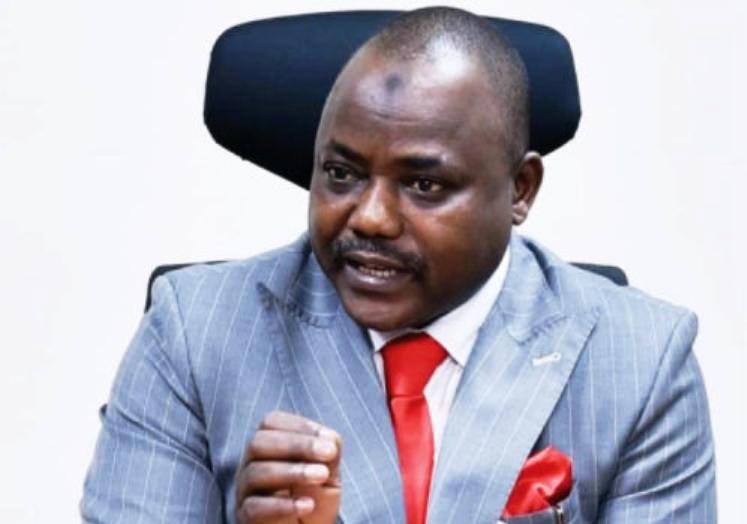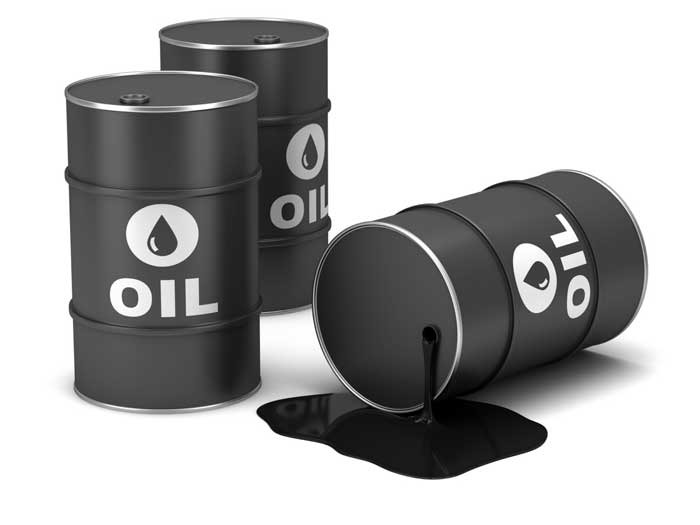The federal government has so far maintained deafening silence, failing to address issues that have propped up since the Department of Petroleum Resources (DPR) announced the commencement of the 2020 marginal oil fields bid rounds.
TheNewsGuru.com (TNG) reports the flag-off of the 2020 marginal oil fields bid rounds comes amidst the Nigeria’s poor financial situation, which has made the implementation of the 2020 budget a Herculean task for the President Muhammadu Buhari’s government with capital and recurrent expenditures already slashed.
Prior to the announcement, stakeholders in the oil and gas industry have consistently urged the FG to conduct an oil bid round for the purpose of raising revenue to fund some of its critical projects.
For the 2020 oil bid round exercise, DPR announced that a total of 57 fields located on land, swamp and shallow offshore terrains are on offer. But the implementing agency announced that the bid round exercise is open to indigenous companies and investors interested in participating in exploration and production business in Nigeria.
Marginal fields: Itsekiri people decry alleged marginalisation in bidding process
Meanwhile, the Itsekiri ethnic nationality in Delta State has decried what it called marginalization in the current bidding process for the 57 Marginal Fields by the DPR.
They expressed their grievance in Ode-Ugborodo, Escravos, Warri South-West Local Government Area (LGA), of Delta, in a statement, after a peaceful protest on Monday.
They tagged the protest “Movement for the Development of Itsekiri Oil and Gas Producing Communities’ (MDIOGPC)”.
The statement was issued by the convener of the protest, Mr Isaac Botosan.
The group threatened to cripple operations of the Oil and Gas companies operating in their homeland, if the Federal Government refused to halt the current biding process of the 57 marginal fields, and subsequently initiate new modalities.
The protesters held placards with different inscriptions like: “We need our share of the marginal fields in our locality, DPR take note,” and “Competent companies owned by Itsekiris must be given first right of refusal”.
Botosan in the statement, condemned the alleged protracted marginalisation of the Itsekiri nation, particularly in the areas of project execution, employment opportunities, infrastructure development, among others; and urged government to address the issues.
He also urged the Federal Government to initiate new modalities where competent companies owned by Itsekiri indigenous people would be given “right of first refusal” on Fields in their homeland before considering outsiders.
“We can no longer continue to sit and watch non-indigenes being offered Oil Mining Licenses in our homeland when we have capable Itsekiri people whose firms are qualified, but repeatedly denied such licenses,” Botosan said.
According to him, the Itsekiri, as a law abiding ethnic nationality, committed to the sustainable peace, growth and development of the Nigerian project, understands perfectly the effect of the COVID-19 on the economy.
“We are equally not unmindful of the teething security challenges the Federal Government is confronting headlong across the country, especially in the North East.
“But, we are, however, constrained to ventilate our frustration regarding the brazen and worsening marginalisation, staring at our face daily by those in charge of managing affairs in the Oil and Gas Sector.
“The marginalisation is clearly evident in a manner that the Multi-Billion Dollar Gas Revolution Industrial Park Project in Ogidigben and Deepsea Port in Warri South-West LGA, have been abandoned.
“The age-long Omadino-Escravos Road, expected to connect the coastal communities in Warri South and Warri South-West LGAs, have remained abandoned till date,” he said.
Botosan, therefore, urged the Federal Government to direct MDAs/IOCs to embark on large scale shore protection/sand-filling projects in Itsekiri riverine/oil producing communities.
He also urged the government to institute a process for the facilitation of the abandoned age-long Omadino-Escravos Road.
One of the protesters, Mrs Taye Mene, who spoke on behalf of the Itsekiri Women Omadinor-Escravos Federated Communities, said the people were suffering as a result of the consequences of oil explorations in their homeland.
Ijaws demand ‘right of first refusal’ in marginal fields bids
Similarly, the Ijaws in Gbaramatu Kingdom, Warri South-West, on Sunday carried out a similar protest, calling on the Federal Government to give its people right of first refusal in the bids for the marginal fields.
Godspower Gbenekama, Spokesman of Gbaramatu Traditional Council of Chiefs, made the call on Sunday at a news conference held at Oporoza, the administrative headquarters of the Gbaramatu kingdom.
Gbenekama who spoke on behalf of the chiefs and other sons and daughters of Gbaramatu, some of whom held placards, alleged the marginalisation of the oil-producing kingdom.
Some of the placards reads: “FG should restart the Omadinor-Escravos road project, “Bring back our Dockyard, NIMASA”, among others.
“We have by this medium announced our total and unequivocal objection to a bidding process that has for long excluded well-to-do Gbaramatu indigenes from the marginal fields.
“The Federal Government should come up with modalities where competent companies owned by Gbaramatu indigenes will be given the right of first refusal on oil fields located in Gbaramatu and Warri South-West,’’ he said.
Gbenekama was unhappy with the ongoing bidding process for the 57 marginal fields by the DPR which according to him had excluded Gbaramatu-owned companies from partaking.
He appealed to the government to relocate to Gbaramatu the Floating Dock/Ship Building Yard originally planned to aid learning in the Nigerian Maritime University, Okerenkoko.
Gbenekama also appealed to the Federal Government to resume work on the abandoned Omadinor-Escravos road to boost socio-economic and peaceful co-existence of Ijaws and Itsekiris.
“We urge the Federal Government to restart the Omadinor-Escravos road project to improve the economic relations between the neighbouring Warri South and Warri South-West Local Government Areas.
“The Federal Government should also resume work on the multi-billion dollars Gas Revolution Industrial Park in Ogidigben and Deep Seaport in Gbaramatu both in Warri South-West, among others,” he said.
CSOs decry exclusion in Marginal Oil fields’ bid rounds
Also, a coalition of Civil Society Organisations (CSOs) had decried their exclusion from the proposed Marginal Oil fields’ bid rounds announced by the DPR.
The group’s protest was contained in a letter to the DPR, jointly signed by the National Coordinator, Publish What You Pay (PWYP) Nigeria, Peter Egbule; Executive Director Centre for Transparency Advocacy (CTA), Faith Nwadishi.
Others include Executive Director, Civil Society Legislative Advocacy Centre (CISLAC), Rafsanjani Auwal Musaand, Chairman, Human and environmental Development Agenda (HEDA) Olanrewaju Suraj.
Others are the National President, Green Alliance Nigeria (GAN) Chima Williams, Chief Executive Connected Development (CODE) Hamzat Lawal; National Coordinator, Media Initiative on Transparency in Extractive Industry (MITEI) Bassey Udo and Programmes Manager, Selemati Foundation, Rita Kigbara.
Also, Executive Director, Enough is Enough (EiE) Nigeria, Yemi Ademolokun; Principal Lead, BudgIT Foundation, Gabriel Okeowo, Director Civic Media Lab, Akinfolarin Oluwaseun, and Programmes Officer, West African NGO Network (WANGONeT) Sandra Dike.
The coalition said that the published bid guidelines by DPR did not involve CSOs among agencies that would monitor the exercise of the Federal Government’s planned award of 57 marginal oil fields’ licenses.
The CSOs said that the published guidelines for the auction were fraught with provisions that might hamper the interest of genuine bidders in the oil fields and deny the country the benefits of set objectives.
They emphasized strict adherence to globally accepted best-practices, while expressing doubts that the current exercise would bring a different result from the past, if government did not make the process more transparent.
They, therefore, advocated the immediate inclusion of about two civil society representatives in the bidders screening team as observers to build public trust and investors’ confidence in the bid process.
The group also sought strong legislative oversight by the National Assembly and involvement of the Nigerian Extractive Industries Transparency Initiative (NEITI) before, during and after the exercise to avoid the experiences of the past.
“After reviewing the guidelines, and putting into perspective, past experiences and pitfalls of similar processes, we deem it important to draw your attention to some of the points that can hinder the success of the process, or limit Nigeria from deriving optimal financial and socio-economic benefits from the exercise.
“We are prepared to play our roles as civil society in support of this very important national exercise with the understanding that it is intended and designed to deliver the overriding interest of Nigeria and Nigerians,” it said.
The group identified licensing as one of the weakest links for value realisation from Nigeria’s petroleum industry, adding that previous exercises between 2000 and 2007 not only fell below global best practices, it failed to secure maximum value for the country’s assets.
To deliver the expected increase in revenue and proven crude oil reserves as well as increase in daily crude oil production, the group said the government must ensure the set goals conformed to the country’s long-term planning objectives in the sector.
According to the CSOs, previous licensing rounds in the country were not tied to any comprehensive asset development strategy or broader economic development plans.
They added that each licensing round of objectives must align with the country’s strategy for managing natural resource base for current and future generations.
The group also called on the government to strengthen the National Data Repository Geological system by making authenticated and certified data easily accessible to bidders to attract capable investors to the oil assets on auction.
On the bidding process, the group urged the DPR to adhere to the published guidelines and criteria on the bid to avoid confusion and ensure due process, noting that the de-politicised criteria must be developed to support local content without compromising the sector’s development potential or returns.
“Nigeria must resist the tendency to extend preferential treatment to companies solely because they are local and well-connected.
“The DPR should amend the guidelines to accommodate the disclosure by all bidders of ‘sworn declaration, complete, comprehensive and accurate information on their ultimate beneficial owner(s).
“This will show that Nigeria is fully compliant with her obligations under the EITI and Open Government Partnership (OGP) principles, transparency and a level-playing-field that will not allow ‘business as usual’ by vested interests,” they said.
Petroleum Minister maintains silence
Meanwhile, President Buhari, who happens to be the Minister of Petroleum, has maintained open silence so far. Apart from his mention of the 2020 marginal oil fields bid rounds during his Democracy Day speech, no words have been heard from the president.
“For the first time in over ten years, Nigeria is conducting bidding process for 57 Marginal Oil Fields to increase revenue and increase the participation of Nigerian companies in oil and exploration and production business.
“With sustained engagement of youths, opinion leaders and other stakeholders, we have restored peace in the Niger Delta Region and maintained our oil production levels,” Buhari stated in his Democracy Day speech.
No repeat of past mistakes in 2020 marginal oilfield bids – DPR
However, the DPR had said there will not be a repeat of past mistakes made in previous exercises in the ongoing bid rounds for 57 marginal oilfields in the country.
Mr Auwalu Sarki, Director, DPR, gave the assurance on June 29 while delivering a keynote address at the Africa Marginal Oilfield and Independent Producers Webinar Conference.
Sarki said the last bid round conducted in 2003 was fraught with litigations and other challenges which hampered the development of some of the awarded 24 marginal oilfields to the detriment of the nation.
He was optimistic that the current exercise which was at the evaluation stage, would not encounter similar issues because of the robust and credible processes put in place by the government.
The DPR boss said: “We have learnt from mistakes made in the past and have come up with workable solutions to ensure that the objective of the development of our marginal fields is achieved.
“This time around, our awardees will be credible investors with technical and financial capability.
“There is also the Post-General Award Conditions. This deals with transfer of interest post award. It means awardees cannot transfer more than 49 per cent interest to another party post-award.
“It also include termination of rights of interest holder which gives the minister power to withdraw the interest of a party who fails to meet its obligations in terms of joint awardees.”
Sarki further said the conditions protected the interest of all investors, saying that any disagreement arising among awardees and their partners post-award would first be referred to the Nigerian Oil and Gas Alternative Dispute Resolution Centre in DPR.
He noted that this would reduce the years spent in courts over disputes which usually led to non-performance of the marginal fields, saying that such awards would henceforth be withdrawn by the government.
“We believe that these steps will bring about a sustainable development of our marginal fields,” the director said.
He added that the objective of the 2020 marginal field bid round was to deepen the participation of indigenous companies in the upstream segment and provide opportunities for technical and financial partnerships for investors.
According to him, the existing 16 marginal oilfields contribute two per cent to the national gas reserves and their operations have brought peace and development to host communities in the Niger Delta.
TNG reports a marginal field is any field that has reserves booked and reported annually to the DPR and has remained undeveloped for a period of over 10 years.


